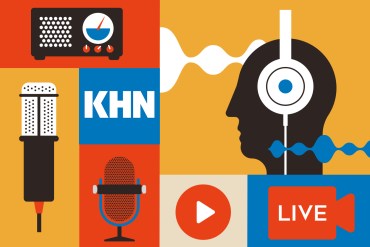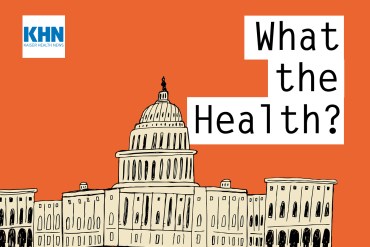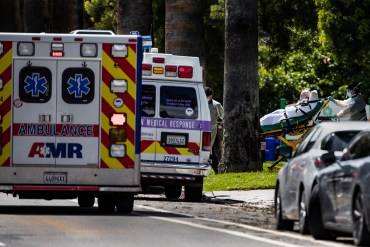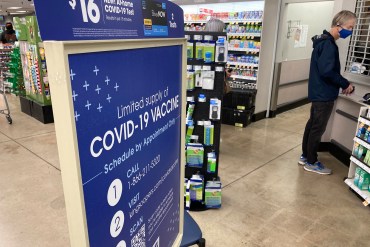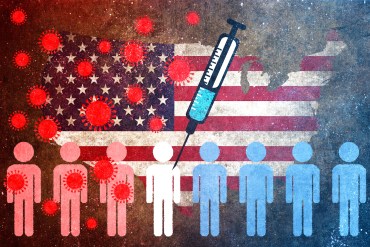La pandemia presenta riesgos a corto y largo plazo para bebés, especialmente varones
Las embarazadas con covid tienen cinco veces más probabilidades que las que no lo están de necesitar cuidados intensivos. Pero las consecuencias para el bebé pueden ser a largo plazo.
Vaccine Promoters Struggle to Get People Boosted in California’s Fields
Stressed vaccine communicators battle anti-vaccine propaganda while seeking to persuade Latino farmworkers to get covid boosters.
The Vaccine Rollout Was a Success. But Events Within and Beyond Biden’s Control Stymied Progress.
There were variants, vaccine hesitancy and messaging mix-ups. And, despite campaign promises, Biden and his administration sometimes took actions or made statements without waiting for full scientific evidence to back them up.
Esfuerzo comunitario para que trabajadores agrícolas reciban el refuerzo de la vacuna contra covid
La necesidad de recibir el refuerzo de las vacunas, y la amenaza inminente de la variante omicron, han hecho que la comunicación sobre covid sea más desafiante en la comunidad de los campos.
Journalists Review Public Views on Vaccines and the Arc of Covid Testing
KHN and California Healthline staff made the rounds on national and local media this week to discuss their stories. Here’s a collection of their appearances.
As Hospitals Fill Up, Paramedics Spend More Time Moving Patients, Less on Emergencies
Gunnison paramedics cover the largest response zone in Colorado. Because of covid and the lack of nearby hospital beds, patients increasingly are transported long distances, leaving few ambulances to respond to emergencies.
KHN’s ‘What the Health?’: Oh, Oh, Omicron
Even before the omicron variant of covid starts to spread widely in the U.S., hospitals are filling up with post-holiday delta cases. Meanwhile, the Supreme Court signals — loudly — that 2022 will be the year it rolls back abortion rights in a big way. Margot Sanger-Katz of The New York Times, Alice Miranda Ollstein of Politico and Mary Ellen McIntire of CQ Roll Call join KHN’s Julie Rovner to discuss these issues and more.
Nurses in Crisis Over Covid Dig In for Better Work Conditions
In tough labor negotiations across the nation, here’s what nurses don’t want: “appreciation that is lip service,” “marketing campaigns” and “shiny new buildings.” And this year might well prove to be a turning point in efforts to organize health care’s essential workers.
After ‘Truly Appalling’ Death Toll in Nursing Homes, California Rethinks Their Funding
California wants to hold nursing homes accountable for the quality of care they provide by tying Medicaid funding more directly to performance. But the nursing home industry, an influential player in the Capitol, is gearing up for a fight.
Covid Shots for Kids Are Scarce — And Demand Is Mixed — In Rural Montana
Although covid vaccines have been available to children as young as 5 for more than a month, they’re not being offered in some rural Montana counties, and parents don’t know where to find them in others.
Colorado Hospitals in ‘Critical Condition’ as State Weathers Another Surge
Patients with other ailments are frustrated, and nurses and doctors are stressed and burned out, as unvaccinated covid-19 patients fill ICU and acute care beds.
How LA, Calling the Shots on School Vaccine Mandates, Can Lead the Way on Covid Rules
In the middle of a measles outbreak in 1977, the Los Angeles school system required students to be inoculated or stay out of class. Other school systems followed the practice. Will it work again now that the county is insisting that teens have their shots against covid?
Journalists Discuss Omicron, Public Health, Culturally Competent Care
KHN and California Healthline staff made the rounds on national and local media this week to discuss their stories. Here’s a collection of their appearances.
KHN’s ‘What the Health?’: Much Ado About (Vaccine) Mandates
The fight over covid vaccines continues to intensify, with Republicans on Capitol Hill pushing — with some success — to cancel President Joe Biden’s “test regularly or vaccinate” requirement for private employers. Meanwhile, abortion is not the only health issue before the Supreme Court this term. Joanne Kenen of Politico and the Johns Hopkins Bloomberg School of Public Health, Sarah Karlin-Smith of the Pink Sheet and Rachel Cohrs of Stat News join KHN’s Julie Rovner to discuss these issues and more.
Hospitales le piden a Santa suministros: falta de todo, desde sillas de ruedas hasta jeringas
En otra consecuencia de la crisis de la cadena de suministro global, hospitales que gestionan los picos de casos de covid durante las Fiestas y a todos sus otros pacientes se están quedando sin suministros básicos para atenderlos
Health Experts Worry CDC’s Covid Vaccination Rates Appear Inflated
Accuracy issues raise red flags because the data is used to plan and direct resources in the nation’s continuing response to the covid-19 pandemic.
Never Mind Toys, It’s Time to Ask Santa for Crutches and Catheters
As hospitals juggle holiday covid surges and all their other patients, the global supply chain crisis has left them short of critical supplies.
From ‘Physician Assistant’ to Medicare, Readers and Tweeters Mince No Words
KHN gives readers a chance to comment on a recent batch of stories.
¿Ha llegado el momento de cambiar la definición de “totalmente vacunado”?
Científicos y funcionarios de salud pública debaten cuándo será el momento de cambiar la definición de “totalmente vacunado” para que incluya una vacuna de refuerzo.
Data Science Proved What Pittsburgh’s Black Leaders Knew: Racial Disparities Compound Covid Risk
Inside the Black Equity Coalition’s novel effort to share community health intel and scrape government data to understand — and document — the life-threatening differences between white and Black Pittsburgh.






